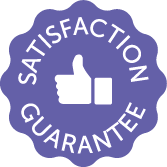Your dinner date ran late. You absolutely had to see the last episode of This Is Us. And now you’re lying in bed, it’s 1 am, and you’re supposed to be up at 6 tomorrow. What have you done to yourself? That’s only 5 hours of sleep! Whatever your scenario – be it work, school, or play – we’ve all been there. Counting on caffeine as the ultimate sleepyhead savior, we write it off as no big deal. But is 5 hours of sleep enough? Enough to function, sure. But it may have some alarming consequences we think you should know about.
#1 Sleep loss makes you a social outcast.
Dark circles, puffy eyes, dull skin – one bad night of sleep quickly shows on our faces. And at least one study found that it makes people less likely to socialize with you. Researchers at Stockholm University found that people who had not gotten enough sleep the night before were rated as less attractive and unhealthy looking – both factors that made people want to steer clear of interacting with them (1). And it’s not because we’re a shallow species who only cares about looks. It’s a built-in survival mechanism. People avoid people who look sickly, so they don’t catch whatever bug it might be.
#2 Sleep loss can kill your diet.
You’ve been counting calories or tackling a 10-day detox or doing the Whole30 or simply trying to eat healthier – beware: short sleep can derail your noble efforts. Two hormones go hand-in-hand in your body to control feelings of hunger and fullness: ghrelin stimulates your appetite and leptin tells your brain when you’ve had enough to eat. Without enough sleep, ghrelin levels leap and leptin levels lag – a double dose of diet disaster (2). Not only will you feel hungrier, you’ll also likely eat bigger portions because it’ll take more food to feel full.
#3 Sleep loss is toxic to your brain.
Beyond the expected grogginess and compromised cognitive function, if you don’t clock enough shuteye, it’s biologically bad for your brain. When you’re in sleep mode, your brain goes into cellular clean-up mode. Cut back on sleep and you’re cutting into cleaning time which can lead to increased levels of amyloid beta, a substance which clumps together creating plaque in your brain that’s toxic to nerve cells – and is linked to Alzheimer’s disease (3).
#4 Sleep loss makes you a bad accident waiting to happen.
Hand over your car keys, sleepyhead. Getting six or fewer hours of shut-eye a night triples your risk of drowsy driving-related accidents, according to the National Sleep Foundation (4). It’s a serious safety issue.
Drowsy driving is a major problem in the U.S. In a National Sleep Foundation survey, 60% of drivers admitted to driving drowsy and 37% admitted to falling asleep at the wheel in the past year (5). The National Highway Transportation Safety Administration attributes 100,000 accidents, 71,000 injuries, 1550 deaths, and $12.5 billion in monetary losses to drowsy driving (5). Even worse, they’re pretty sure this is a gross underestimate since it’s difficult to know if a driver was nodding off or not. (There’s no breathalyzer that gauges sleepiness.)
Now you might be thinking to yourself, “It can’t be all that bad. What about all those successful people you hear about that only sleep 4 or 5 hours a night? They seem to be doing alright.”
You have a point, but it’s not as straightforward as that. Some people have a genetic difference that makes them able to thrive on less sleep – and it’s very unlikely that that applies to you (sorry!). A mere one percent of the population is made up of “short sleepers,” people who only require four to six hours of sleep instead of the recommended seven to nine (6).
If you’re not one of these “sleep elite,” plan to squeeze a power nap into your day to make up for your previous evening’s nocturnal neglect. It can vastly improve your cognitive function (and make you less of a public health threat!). A study published in the journal Sleep found all it takes is 10 minutes (7). They tested both longer and shorter naps and found 10 minutes of mid-day snoozing was the most effective afternoon nap duration after an evening of only 5 hours of sleep. Think that sounds challenging given your hustle-bustle life? Here are 7 Expert Tips for the Best Power Nap Ever – anytime, anyplace.
References:
- Sundelin, Tina, et al. “Negative Effects of Restricted Sleep on Facial Appearance and Social Appeal.” Royal Society Open Science, vol. 4, no. 5, 2017, p. 160918., doi:10.1098/rsos.160918.
- Short Sleep Duration Is Associated with Reduced Leptin, Elevated Ghrelin, and Increased Body Mass Index - Shahrad Taheri, Ling Lin, Diane Austin, Terry Young, Emmanuel Mignot PLoS Medicine - 12 / 2004
- “Preventing Alzheimer's: Sleep, Nutrition, and Amyloid Beta Clearance.” Wellness Resources,
- “Who's at Risk?” Drowsy Driving Stay Alert Arrive Alive RSS, drowsydriving.org/about/whos-at-risk/.
- “Facts and Stats.” Drowsy Driving Stay Alert Arrive Alive RSS, drowsydriving.org/about/facts-and-stats/.
- Insider, Lydia Ramsey Business. “There Could Be a Scientific Reason Why Trump Can Sleep Just 4-5 Hours a Night.” ScienceAlert, www.sciencealert.com/common-characteristics-among-people-short-sleeping-disorder.
- Brooks, Amber, and Leon Lack. “A Brief Afternoon Nap Following Nocturnal Sleep Restriction: Which Nap Duration Is Most Recuperative?” Sleep, vol. 29, no. 6, 2006, pp. 831–840., doi:10.1093/sleep/29.6.831.
All material on this website is provided for your information only and may not be construed as medical advice or instruction. No action or inaction should be taken based solely on the contents of this information; instead, readers should consult appropriate health professionals on any matter relating to their health and well-being.






















